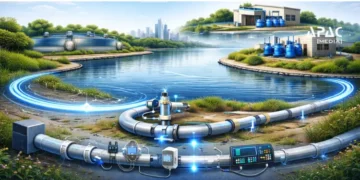In an exclusive conversation with the Assistant Editor at APAC News Network and CXO News, Giridhar GV, Global CHRO, HGS, discusses the upcoming HR trends to lookout for and even emphasises over the extensive usage of tech in HR and how HRs should embrace this new phenomenon
What key HR trends are expected to reshape talent acquisition in 2025?
As we approach 2025, the talent acquisition landscape is undergoing significant change, shaped by advancements in technology, evolving workforce priorities, and global economic shifts. Organizations must adapt swiftly to stay competitive in attracting and retaining talent.
AI is set to play a transformative role in recruitment. Intelligent algorithms will analyze candidate profiles, craft tailored job descriptions and predict long-term compatibility. These tools will streamline hiring processes, reduce costs, and ensure organizations select candidates aligned with their culture and goals.
Immersive technologies like AR/VR technologies are at the forefront of transforming employee onboarding and training, enabling organisations to embrace digital transformation more effectively. These immersive tools replicate real-world environments, scenarios, and interactions, providing a dynamic and engaging learning experience that redefines how skills are developed and applied in the digital age.
Personalisation will become a cornerstone of the employee experience. With the help of data-driven insights, organizations can craft tailored career paths, individualized rewards, and targeted development programs. This approach fosters engagement, improves productivity, and builds loyalty across the workforce.
The rise of remote and hybrid work introduces new challenges for employee wellbeing. While flexibility supports better work-life integration, it also raises issues like isolation and burnout. Companies must innovate with strategies that prioritize mental health, foster virtual collaboration, and provide resources to maintain productivity without compromising well-being.
How will AI and automation influence HR practices in the coming years?
AI and automation are rapidly transforming HR practices. As these technologies advance, their impact will only intensify. Recruitment and other HR functions are becoming increasingly data-driven, although current implementations still have gaps, such as AI systems sometimes rejecting qualified candidates due to errors.
For companies like us who do high-volume hiring, AI and automation are invaluable. AI-powered bots can handle initial candidate screening, allowing recruiters to focus on interviewing shortlisted individuals. This streamlines the process and increases efficiency.
In the coming years, AI and automation will significantly advance workplace diversity and inclusion. Advanced analytics will precisely track diversity metrics, revealing disparities in hiring, pay, and representation. This data will inform strategies to promote equity. Generative AI will refine job descriptions, removing biased language and ensuring broader accessibility. AI-powered real-time evaluation of DEI initiatives will provide actionable insights for rapid improvements and measurable impact.
In what ways will employee well-being initiatives evolve by 2025?
By 2025, well-being initiatives will be more holistic, personalized, and technology-driven, prioritizing physical and mental health within the evolving workplace. Employee well-being initiatives will transform due to the prevalence of hybrid and remote work. Wellness is already a key organizational priority, impacting talent acquisition and retention. Maintaining well-being in distributed teams demands innovative solutions.
Traditional wellness programs will adapt to virtual settings, with increased use of digital platforms offering virtual fitness, mindfulness, and mental health resources. Personalized well-being plans, leveraging data and AI, will become more prevalent.
Addressing remote work challenges like isolation and blurred work-life boundaries will be crucial. Companies will invest in virtual team building, online social groups, and digital communication tools to foster connection. Training will focus on healthy work habits at home, including ergonomics, time management, and stress management.
Financial wellness programs will also evolve, offering personalized financial planning tools, education, and access to advisors. These will address financial security, retirement, and managing expenses.
How can HR adapt to the growing demand for remote and hybrid work models in 2025?
By 2025, remote and hybrid work will be firmly established, requiring HR to adapt in several key ways, some of these include:
- Developing Remote-First Policies and Infrastructure
- Prioritizing Employee Well-being and Engagement
- Rethinking Performance Management
- Enhancing Communication and Collaboration
- Focusing on DEI
What emerging technologies should HR leaders embrace to stay competitive in 2025?
To remain competitive in 2025, HR leaders must embrace several key emerging technologies. While continuous learning is essential, HR needs to focus on advancements in:
- Artificial Intelligence (AI) and Machine Learning (ML)
- Automation and Robotic Process Automation (RPA)
- Natural Language Processing (NLP)
- Cloud Computing and HR Information Systems (HRIS)
- Advanced Analytics and Big Data
By embracing these technologies, HR leaders can enhance efficiency, improve decision-making, and create a more engaging and productive employee experience, ultimately driving organizational success.
How will the role of HR in fostering continuous learning and upskilling transform by 2025?
By 2025, HR’s role in continuous learning will shift dramatically from traditional classroom training to more engaging and flexible methods. Employees expect personalized learning experiences that fit their needs and schedules. HR will be key in facilitating these new approaches:
- Digital-First Approach: Moving away from long classroom sessions towards on-demand digital learning platforms for anytime, anywhere access.
- Innovative Learning Formats: Promoting engaging methods like:
- Microlearning: Short, focused modules for easy consumption.
- Gamification: Using game elements to enhance engagement.
- Personalized Learning: Tailoring content to individual needs and goals.
- Social Learning: Encouraging peer-to-peer learning.
- Experiential Learning: Providing hands-on learning opportunities.
- Curating Learning Resources: HR will curate relevant content from diverse sources like online courses, webinars, and publications.
- Fostering a Learning Culture: HR will encourage continuous learning by empowering employees, providing resources, and recognizing learning achievements.
These changes will empower employees to upskill continuously, driving individual and organisational growth.
What changes can be expected in performance management and employee feedback systems in 2025?
By 2025, performance management will shift from annual reviews to continuous feedback, driven by technology. Platforms will integrate with HR systems, providing holistic employee views. AI will analyze performance data, offering personalized development insights.
Real-time feedback through mobile apps and communication platforms will be standard, fostering continuous improvement. 360-degree feedback will be streamlined and automated.
The focus will shift from past performance to future development, with conversations centering on coaching, skills, and career growth. Data-driven insights will identify skill gaps and recommend learning resources.
In a nutshell, performance management will be more continuous, data-driven, and development-focused, using technology to facilitate ongoing feedback and personalized growth.
How will HR departments address the challenges of generational diversity in the workforce by 2025?
By 2025, managing a multi-generational workforce will require HR to move beyond the stereotypes and embrace a more nuanced approach. Key strategies will include:
- Moving Beyond Stereotypes: HR will actively combat generational stereotypes, recognizing that individuals within each generation are diverse. Focus will shift to individual skills, experiences, and preferences rather than broad generalizations.
- Prioritizing Flexibility and Autonomy: Recognizing Gen Z’s strong desire for work-life balance and flexibility, HR will implement flexible work arrangements, remote work options, and personalized work schedules where possible, benefiting all generations.
- Promoting Reverse and Cross-Generational Mentorship: HR will facilitate mentorship programs that encourage knowledge sharing and skill development across generations. This includes reverse mentorship, where younger employees mentor older colleagues on technology and social media, and cross-generational mentorship, where individuals from different generations learn from each other’s experiences and perspectives.
- Inclusive Communication and Collaboration: HR will promote inclusive communication styles and collaborative tools that cater to different communication preferences and technological comfort levels.
By implementing these strategies, HR will create a more inclusive and engaging work environment that leverages the strengths of each generation, fostering collaboration and innovation.



































































Discussion about this post